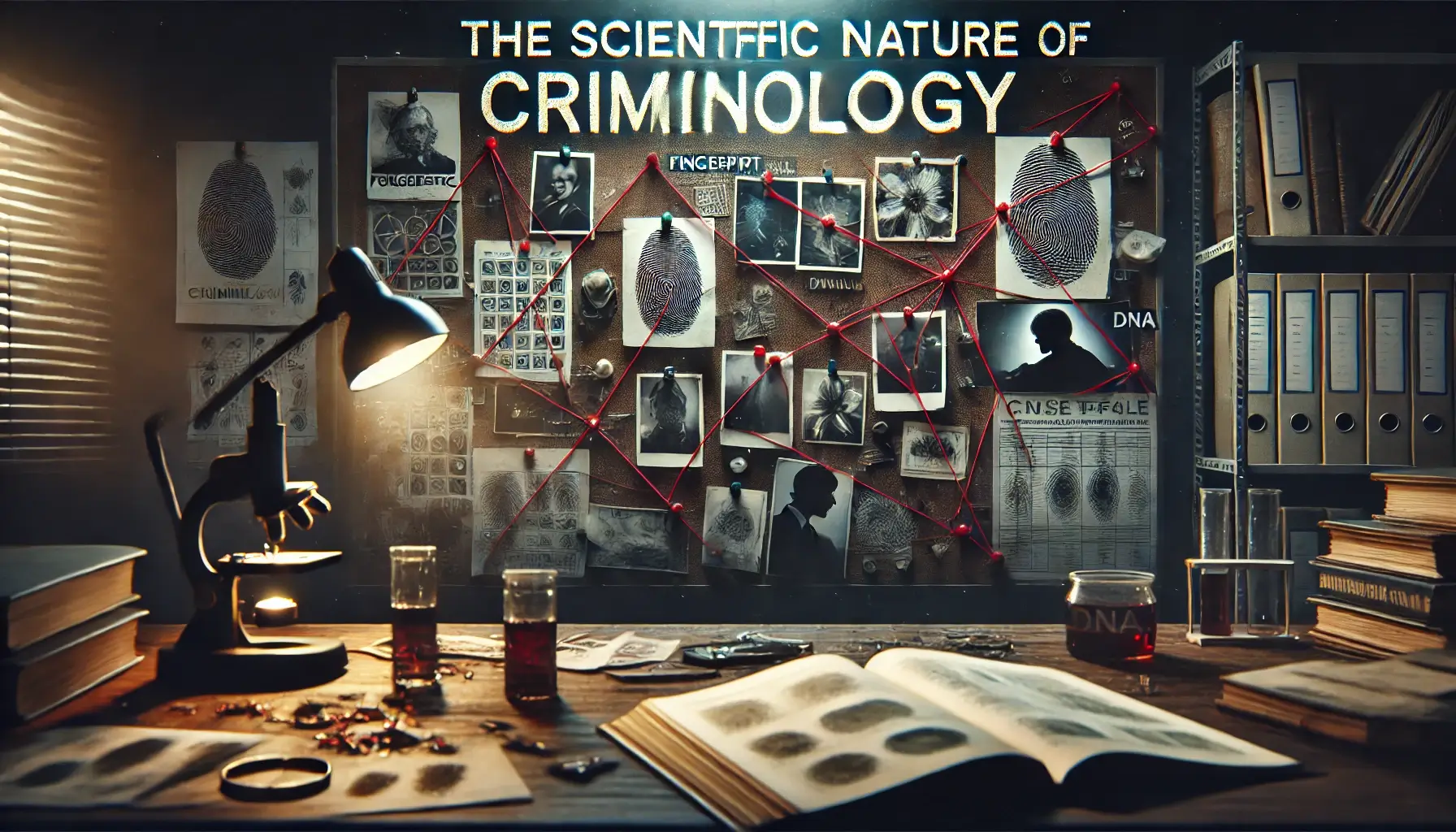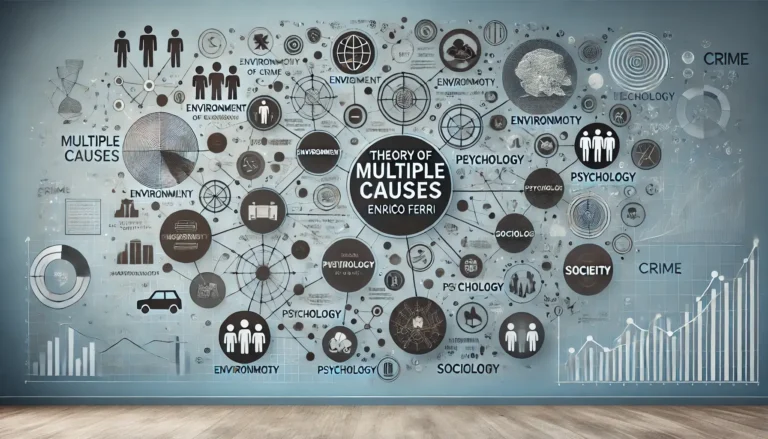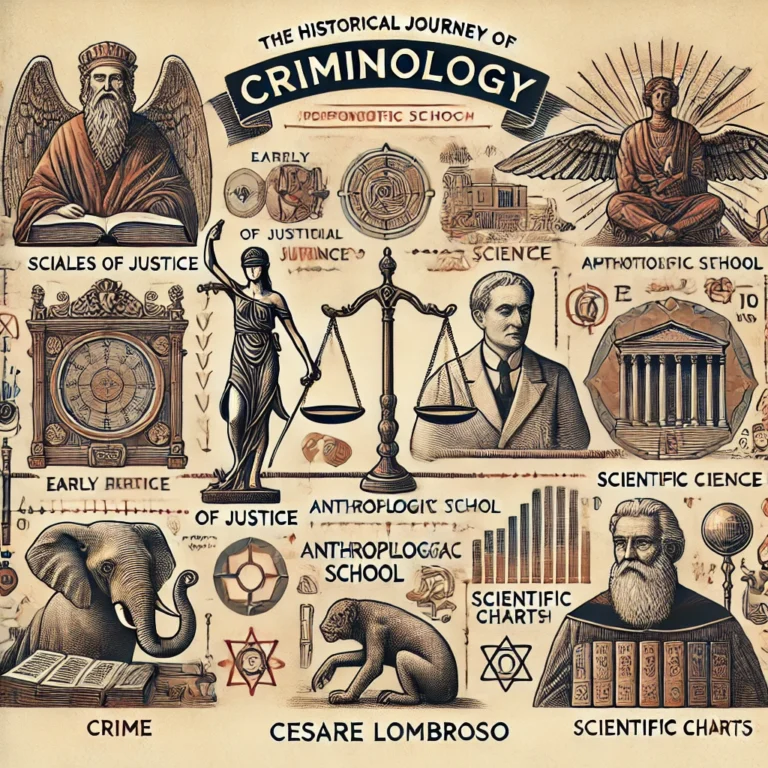The Scientific Nature of Criminology
Introduction to Criminology as a Science
Criminology, as a field of study, has evolved significantly over the centuries, transitioning from philosophical and moral discussions on crime to an empirical and systematic discipline rooted in the scientific method. The scientific nature of criminology is fundamental to its credibility, allowing researchers to analyze criminal behavior, patterns, and causes objectively. This article explores the scientific foundations of criminology, including its methodologies, theories, and the importance of empirical research in understanding crime.
The Foundations of Criminology as a Science
Criminology is often classified as a social science because it relies on systematic methods of investigation, data collection, and analysis. The field incorporates elements from psychology, sociology, biology, and legal studies to offer a comprehensive understanding of criminal behavior. The scientific nature of criminology is evident in its reliance on empirical data, hypothesis testing, and rigorous methodologies to formulate theories and policies.
The Role of Empirical Research
One of the defining aspects of scientific criminology is its reliance on empirical research. This includes the systematic observation, experimentation, and collection of data to test hypotheses about criminal behavior. Empirical research in criminology helps to:
- Identify trends and patterns in crime.
- Assess the effectiveness of crime prevention strategies.
- Understand the psychological and sociological factors contributing to criminal behavior.
The Application of the Scientific Method in Criminology
The scientific method in criminology follows several essential steps:
- Observation and Questioning: Researchers begin by identifying a crime-related issue or phenomenon.
- Formulating Hypotheses: Based on existing literature and theories, criminologists propose explanations for observed patterns.
- Data Collection and Experimentation: Quantitative and qualitative research methods are employed to collect data.
- Analysis and Interpretation: Statistical and analytical tools are used to examine the collected data.
- Conclusion and Policy Implications: Findings are applied to develop crime prevention strategies and influence policymaking.

Quantitative vs. Qualitative Approaches in Criminology
Scientific criminology employs both quantitative and qualitative research methods to understand crime.
Quantitative Methods
Quantitative criminology relies on numerical data to analyze crime trends and patterns. Methods include:
- Surveys and questionnaires
- Crime statistics analysis
- Experimental research
Qualitative Methods
Qualitative research provides deeper insight into criminal behavior through:
- Case studies
- Interviews with offenders and victims
- Ethnographic research
Key Theories Supporting the Scientific Nature of Criminology
Scientific criminology is grounded in several theories that have been tested and refined through research:
Classical Criminology
The classical school, founded by Cesare Beccaria and Jeremy Bentham, emphasized rational choice and deterrence. It laid the groundwork for later empirical studies on the effectiveness of punishment.
Biological Theories
Early biological theories, such as Cesare Lombroso’s theory of the “born criminal,” have evolved into modern genetics and neuroscience research on crime. Scientific studies now investigate the role of brain structure, hormones, and genetic predisposition in criminal behavior.
Sociological Theories
Sociological theories, including strain theory and social learning theory, utilize scientific methods to examine environmental and social influences on criminal behavior.
Psychological Theories
Psychological research explores cognitive and behavioral factors that contribute to criminality, often using experimental methods and longitudinal studies.
The Importance of Objectivity and Ethical Considerations
Scientific criminology requires objectivity, ensuring that research findings are not influenced by personal biases or political agendas. Ethical considerations in criminological research include:
- Informed consent of participants
- Confidentiality and anonymity
- Avoidance of harm to subjects

The Role of Technology in Modern Criminological Research
Advancements in technology have enhanced the scientific study of criminology through:
- Data analytics: Predictive modeling and artificial intelligence (AI) help analyze crime trends.
- Forensic science: DNA analysis and digital forensics have revolutionized crime investigations.
- Geospatial analysis: Mapping crime hotspots assists law enforcement in resource allocation.
Challenges in Scientific Criminology
Despite its scientific advancements, criminology faces challenges such as:
- The complexity of human behavior, making it difficult to establish definitive causal relationships.
- Ethical dilemmas in experimenting with crime-related research.
- The influence of political and social factors on criminological studies.
Conclusion: The Future of Scientific Criminology
The scientific nature of criminology is fundamental to its legitimacy as a discipline. Through empirical research, the application of the scientific method, and advancements in technology, criminologists continue to enhance our understanding of crime and its causes. The future of criminology lies in integrating interdisciplinary approaches and maintaining ethical standards to ensure that research contributes meaningfully to crime prevention and policy development.







